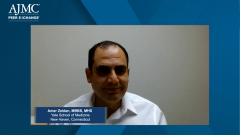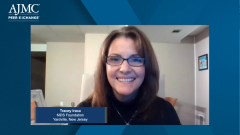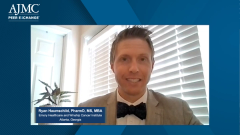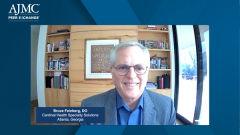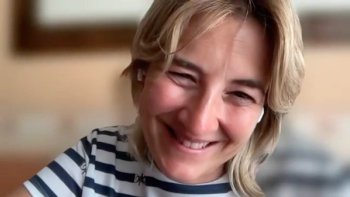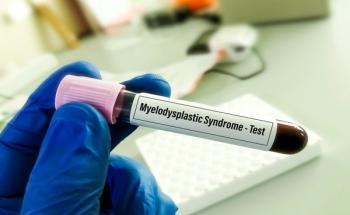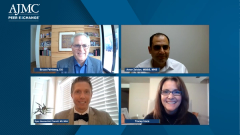
Approaching Patient and Caregiver Education on Myelodysplastic Syndromes
Shared insight on how to best educate patients and caregivers on the broad nature of myelodysplastic syndromes.
Episodes in this series

Transcript:
Bruce Feinberg, DO: Tracey, you have a much more direct patient outreach level. Are patients having to become that sophisticated? Are the foundations trying to help patients become more sophisticated in understanding, so it’s not just the umbrella diagnosis but that specificity that this is a spectrum of diseases that are defined by their genotype?
Tracey Iraca: Absolutely. It’s something we’ve been doing for the past couple of years, empowering patients and their caregivers to know the difference in subtype. We did a survey and found that less than 50% of patients knew their subtype and less than 30% of their caregivers knew their subtype. It was something that we immediately learned was an important area to start educating patients on. We also found it important to educate the physicians on, making sure they tell their patients their subtypes. Sometimes the information isn’t given because physicians think patients won’t understand it, or maybe can’t take it.
Bruce Feinberg, DO: Having lived on the physician side—granted there were many fewer options for treatment 10 and 20 years ago—if you have an older patient sent to you because they have a chronic anemia and you’re not sure if they’ll ever experience the leukemia side of the disease in their remaining years of life because of their other comorbidities, do you go down that path? It’s almost an ethical question. How far do you go in terms of beating them over the head and telling them, “No, you have a cancer. I know they told you it was chronic anemia, but no, you have a cancer”? I’m curious. And I love the survey. Is that survey published?
Tracey Iraca: No, it’s not. It was an informal survey. We immediately got over 500 responses. We made it simple and asked, “Do you know your subtype? Do you know your IPSS-R [Revised International Prognostic Scoring System] score?” Because we found that many people didn’t, we started a program called Knowledge is Power—which is available on our website—to know your subtype, your score, and your mutation, because that’s important information. Bruce, to your point about people not knowing whether to tell the patient, we’re finding that the caregivers, grandchildren, and people going to the appointments with them want to know. They want that information so they can help.
Bruce Feinberg, DO: I have to tell you. I’ve had some very uncomfortable conversations with family members asking me, “Why did you tell them that?” It’s my job, to be honest. They’re the patient. It’s my responsibility. How can I not tell them?
Transcript edited for clarity.
Newsletter
Stay ahead of policy, cost, and value—subscribe to AJMC for expert insights at the intersection of clinical care and health economics.
